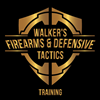| Date | Availability |
|---|
There are no upcoming classes scheduled for this course.
Description
NYS CONCEALED CARRY FIREARM SAFETY TRAINING
The New York State Concealed carry firearms safety training requires (16) hours of -in-person live classroom instruction and (2) hours of live-fire training by Duly Authorized Instructors. Safety Quest Limited is authorized to provide this instruction. A certificate will be issued upon completion of the NYS required 18 hours of training.
(16) Hour In-Person Classroom Instruction Consists of:
- General firearm safety
- Firearm safety storage
- NYS and Federal gun laws
- Concealed Carry situational awareness – firearm display and concealment
- Conflict de-escalation tactics
- Adverse alcohol and drug effects and firearm safety
- Best practices when encountering law enforcement
- Statutorily defined sensitive and restrictive places
- Conflict management
- Use of deadly physical force
- Suicide prevention
- Basic principles of marksmanship
Following completion of the (16) hour in-person classroom instruction each student must score a minimum of 80% on a NYS required written test covering the course curriculum.
(2) Hour Live-Fire Course Curriculum Topics Consist of:
- Range safety, safe drawing, target acquisition, and re-holstering, dry firing, safe loading & unloading of ammunition, performing a firearm condition check: how to achieve and verify a safe and empty firearm condition and the safe discharging of the firearm
Following the live-fire training, each student must demonstrate proficiency as required by New York State conducted by the Duly Authorized Instructor.

Topics Covered
Lessons:
- Developing a Personal and Home Protection Plan
- Self-Defense Firearms Basics
- Shooting Fundamentals
- Gear and Gadgets
- The Legal Use of Force
- Violent Encounters and the Aftermath
- Basic and Advanced Skills
Other topics covered: Personal Safety, Handgun Safety, Handgun Fundamentals, Handgun Operation, Handgun Selection, Physiological Reactions to Violent Encounters

Expectations and Outcomes
Each participant will have to complete a written exam and pass with a minimum of 80%
Those who successfully pass the exam and qualification will be issued a certificate of completion to include in their application packet.
STUDENT CONDUCT AND EXPECTATION: Students are expected to behave respectfully and with consideration for others while in the classroom, on the premises, at the shooting range, or during any training activities. Any student failing to adhere to these standards will be warned and reminded of the guidelines. If disruptive behavior continues, the student may be removed from the class without a refund. Disruptive conduct that significantly affects the class environment, endangers the safety of others, or violates the student code of conduct will result in the student being asked to leave. No refund will be given in such cases.

Types
Concealed Carry Training, In Home Defense Training

Documentation Requirements
WHAT IS REQUIRED FOR CLASS: Forms of Identification (Driver license, Photo Id, Permit, Passport, credit card etc.)
Long pants and and long sleeve shirts, hoody etc.
Lunch Water / Beverage
*Please dress in non-revealing clothing as hand on practical scenarios may conducted as time permits
*Do not wear open toed shoes, crocs, sandals or slippers
The instructor requires a copy of your Government Issued ID once you register.

Requirements
PROHIBITED PERSONS: Under federal law, we cannot train individuals who meet the following criteria: • Convicted felons (unless annulled or pardoned) • Under indictment or convicted of a crime punishable by over one year in prison • Fugitives from justice • Users or addicts of illegal controlled substances • Individuals adjudicated as mentally defective or committed to a mental institution • Illegal aliens • Individuals dishonorably discharged from the military • Persons who have renounced U.S. citizenship • Individuals under a court order for harassment, stalking, or threatening an intimate partner or child of an intimate partner • Those convicted of misdemeanor domestic violence • Individuals under the influence of substances that impair their ability to handle a firearm safely

